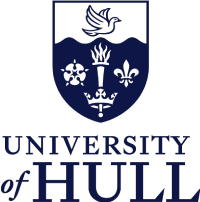Dr I M Bell, Prof G Greenway, Dr D Kuvshinov, Dr M Rogerson
No more applications being accepted
Funded PhD Project (Students Worldwide)
About the Project
Sensing and Safeguarding the Water Environment
To celebrate the University's research successes, the University of Hull is offering six full-time UK/EU/International PhD Scholarships for candidates applying for each of the following projects.
Studentships will start on 16th September 2019
Summary of Cluster
Water pollution from industry, agriculture and urban settings is a major global pressure on human and ecological health. Effective monitoring of water quality is vital to safeguard our water supply and managing the health of our aquatic ecosystems. However, traditional monitoring has relied on relatively expensive physical sensors operating at low spatial resolution that require skilled personnel for servicing and maintenance. Such sensing systems are often not affordable; in particular in those jurisdictions with the greatest challenges concerning water quality. A fuller understanding of water quality and pollution dynamics, including sources and behaviour of pollutants are often lacking, hindering cost-effective and targeted environmental management.
There is an urgent need for gathering data at low cost, that goes beyond simple physical sensors operating at low frequency (monthly, annually) and low spatial resolution (<1 sample per 40 km2 even in some OECD nations) towards chemical and biological sensing of pollutants and key environmental parameters at higher frequencies (< daily) and higher spatial densities. This will facilitate better quantification of trends and pressures, underpin predictive modelling and provide the foundation for robust and cost-effective management of the aquatic environment.
High frequency sensing requires either (1) simple and low-cost devices operated by citizens or lower skilled agents locally and uploaded to a cloud to build a picture of a larger area that is not obtainable by sending expert scientists into the field in isolated locations at isolated time points, or (2) automated systems mounted on platforms, buoys or robotic vehicles and sending data to a central server. Computer scientists are then needed to pull the information together, exploring change patterns and deriving computer models of the dynamics of environmental change.
With recent breakthroughs in pump- and label-free fluid processing as well as label-free high sensitivity sensing, complex sample processing workflows can now be greatly simplified, offering a pathway to create high density networks of automated sensors or enrolling members of the general public in gathering data with simple sensors.
In this cluster we bring together experts in environmental sciences for marine, coastal and river waters with experts in lab-on-a-chip, nanophysics sensing technologies and lifecycle engineering as well as big data analytics to address research questions in this area.
The students will join an exciting research and training environment. They will have access to our Lab-on-a-Chip Fabrication Facility, our Fab Lab for 3D printing and additive manufacturing and our Nanofabrication & Nanopatterning Facilities. Our University has invested heavily in High Performance Computing with VIPER as the highest-rated academic HPC in the North of England. Through our Environmental Scientists we have access to a wide range of sample sites including streams and rivers, aquaculture farms and estuarine/oceanic sites. Our NERC/UoH-funded Transportable Environmental Analytical Laboratory (TEAL) will provide a key means for facilitating real-world testing. Our cluster supervisors have excellent links to industry and stakeholders which we will involve as advisors in the projects. This will provide a unique opportunity for our cluster PhD students to engage across sectors and provide access to additional training that will greatly enhance PhD employability and also create KTPs and spin-out opportunities. The PhD students immersed in this environment will develop responsible citizenship and be empowered to take on the next step in their career, be it as PostDoc, employee or running their own spin-out company.
PhD Project
Analysis-on-a-roll platforms for automated and high frequency remote sensing of natural geochemical fluxes with Ian Bell (engineering design), Gillian Greenway (analytical chemistry), Dmitriy Kuvshinov (chemical engineering) and Mike Rogerson (geoscience). The PhD student will investigate a novel approach to high-frequency measurement of chemicals in natural water systems using automated/robotic sensing that does not require any user input. This will allow in-situ water analysis in less accessible locations, e.g. cave systems, remote waterways or ocean platforms. Such systems can not only be used for pollution monitoring, but also provide data which can advance our fundamental understanding of geoscience. The ‘analysis-on-a-paper-roll’ approach will reduce operational difficulties associated with glass or plastic devices under repeated use in remote automated systems. The work will build on our experience in developing in-situ lab-on-a-chip systems and will consider aspects of design for reliability (automatic fault detection, data integrity) and the possible impacts of in-situ sensors on the environment. The project would be suited for a candidate with a degree in Engineering or a related discipline.
Contact: Dr Ian Bell ([Email Address Removed])
Applicants for all projects should have a 1st class undergraduate degree and Masters level qualification in physical, engineering or environmental sciences, or a related discipline, together with relevant research experience. A 2:1 may be considered, if combined with relevant experience.
To apply for these Scholarships please click on the link below:
https://www.hull.ac.uk/choose-hull/study-at-hull/admissions/postgraduate/how-to-apply.aspx
The studentships will include full fees and maintenance (£14,777 in 2018/19) for three years, depending on satisfactory progress.
PhD students at the University of Hull follow modules for research and transferable skills development and gain a Masters level Certificate, or Diploma, in Research Training, in addition to their research degree.
Interviews will be held between 7th and 27th February 2019
Successful applicants will be informed of the award as soon as possible and by 15th March 2019 at the latest.

 Continue with Facebook
Continue with Facebook

